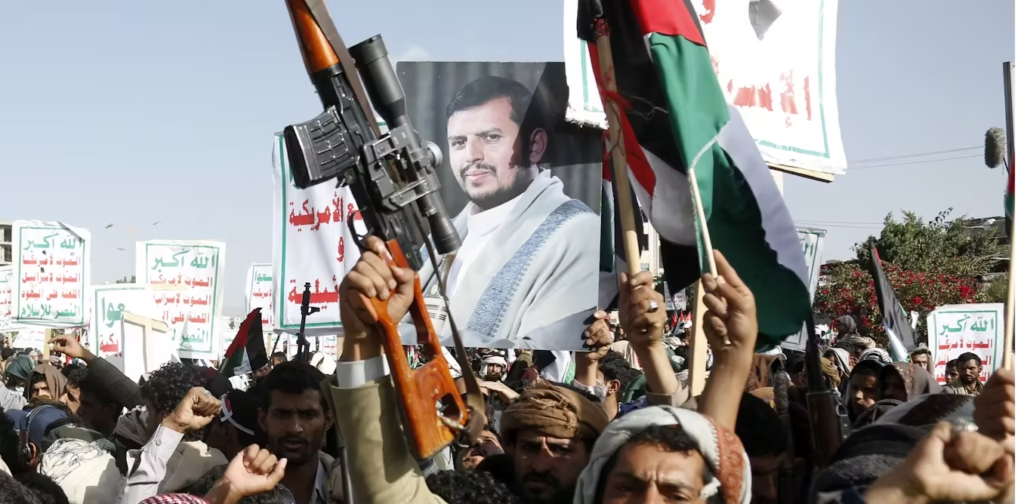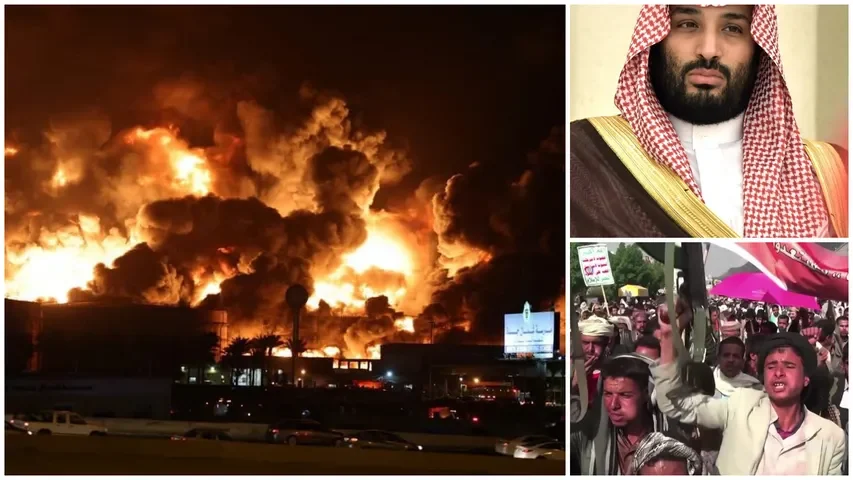Houthis Warn Saudi Arabia Over Ties With US, Israel—Will the War Resume?
Yemen’s powerful Houthi rebel movement has issued a serious threat to Saudi Arabia, warning the Kingdom against aligning militarily with the United States and Israel. The stark warning, delivered by Houthi leader Abdul Malek al-Houthi in a televised speech, comes amid growing regional instability and renewed violence in the Red Sea and across Yemeni territory.
Saudi Arabia, having stepped back from direct involvement in the Yemeni conflict after nearly a decade of costly war, now faces a critical moment. The possibility of being dragged back into the conflict looms larger with each new missile strike and diplomatic turn.
Houthi Leader Issues Military Threat Over US-Israel Alliance
In his recent address, Houthi leader Abdul Malek al-Houthi condemned what he described as growing military coordination between the U.S., Israel, and Saudi Arabia. He warned that any direct American support for Israel, particularly in its ongoing military campaign in Gaza, would trigger a strong and immediate military response from Houthi forces.
This response, al-Houthi stated, could include long-range missile strikes, drone attacks, and other advanced weapons. He reiterated his group’s allegiance to the “Axis of Resistance,” an anti-Israel alliance that includes Iran, Hezbollah, and other Iran-aligned factions across the region.
“The hands of the Yemeni people will not be tied,” he said, adding that the Houthis are prepared to defend themselves and strike “deep inside” if provoked.

This warning raises fresh concerns in Riyadh. The Saudi government, which has been trying to ease tensions and pursue domestic reforms under Crown Prince Mohammed bin Salman, now finds itself in a position where inaction could threaten national security, and action could reignite a long-drawn war.
Background: A War Saudi Arabia Wanted to End
Saudi Arabia first entered the Yemen conflict in 2015, leading a coalition of Arab nations in a military campaign aimed at defeating the Houthi rebels and restoring the internationally recognized government of President Abd-Rabbu Mansour Hadi. Over time, the war dragged on, causing one of the worst humanitarian crises in the world.
By 2022, Saudi Arabia had scaled back operations and began seeking peace through backchannel talks with the Houthis, resulting in a fragile truce. However, that truce now stands at risk of collapsing under the pressure of regional dynamics.
New Wave of Military Escalations
1. Israeli Strikes in Yemen
In an unprecedented move, the Israeli military carried out airstrikes in Yemen on December 26, 2024. The strikes targeted key Houthi infrastructure, including Sanaa International Airport and Hudaydah Port—both critical for logistics and potential drone launches.
While Israel claimed the strikes were a preemptive measure to stop threats against its ships and interests in the Red Sea, the attack resulted in civilian casualties and damaged infrastructure, inflaming tensions.
2. US Airstrikes on Houthi Bases
Following a series of Houthi missile and drone attacks on commercial shipping lanes, the U.S. launched its own precision strikes targeting Houthi missile storage sites, communication hubs, and radar facilities.
The U.S. Pentagon framed the operation as a defensive action to protect maritime routes in the Red Sea, through which nearly 12% of global trade flows. The Houthis responded by vowing more attacks in retaliation, framing their actions as part of the resistance against Israeli aggression in Gaza.
Saudi Arabia’s Delicate Balancing Act
Saudi Arabia has responded cautiously. While expressing deep concern over the growing conflict, the Kingdom has avoided direct military involvement in the recent strikes or U.S.-led maritime missions.
Saudi’s Official Stance
In a recent statement, the Saudi Foreign Ministry said it was monitoring the situation with “great concern” and called for “self-restraint and de-escalation.” The statement emphasized the need to avoid steps that would further inflame the humanitarian crisis in Yemen.
Why Riyadh Is Holding Back
Analysts suggest that Saudi Arabia is trying to maintain its new image as a regional stabilizer and global economic power, especially amid ambitious projects like Vision 2030. Involvement in another full-scale war could jeopardize that progress.
Still, if the Houthis target Saudi infrastructure or border regions—as they have in the past with missile and drone attacks—the Kingdom may be forced to retaliate, drawing it back into conflict.
Wider Regional Impact
The current crisis in Yemen and the Red Sea has implications far beyond Saudi borders.
Red Sea Shipping Under Threat
The Houthis have repeatedly launched drone and missile attacks on ships passing through the Red Sea, claiming they are targeting vessels connected to Israel. This has caused significant disruption to global trade routes, prompting shipping companies to take longer and costlier routes around Africa’s Cape of Good Hope.
Such delays are not only affecting shipping costs but also raising fears of global inflation, particularly in energy and goods markets.
Humanitarian Disaster in Yemen
The renewed violence adds to an already devastating humanitarian crisis in Yemen. Millions of people are living in poverty, facing famine, displacement, and lack of basic health care.
Despite the ongoing suffering, the Houthis continue to enjoy support among parts of the population, especially for their pro-Palestinian stance. Many Yemenis view the Houthi campaign against Israel as part of a larger resistance movement, even at great personal cost.
Could a Regional War Erupt?
The growing web of alliances and retaliations is raising concerns that the Middle East may be heading toward a broader, multi-nation conflict. The U.S., Israel, Iran, and now potentially Saudi Arabia are all entangled—either directly or through proxy forces.
One wrong move, experts warn, could trigger a dangerous escalation. In such a scenario, the region could face a new war front that would be more complex and devastating than previous conflicts.
Conclusion: All Eyes on Riyadh
The Houthis’ warning has put Saudi Arabia in a tight spot. The Kingdom’s decision in the coming weeks—whether to stay on the sidelines or re-enter the battlefield—could change the course of regional politics.
For now, Riyadh appears to be playing for time, hoping that diplomatic channels and international pressure can help de-escalate the crisis. But with every new missile launch and drone strike, the pressure mounts.
Whether Saudi Arabia can continue walking this diplomatic tightrope remains to be seen. One thing is clear: the choices it makes now will have far-reaching consequences for the region—and the world.
Do follow gulf magazine on Instagram
for more information click here



